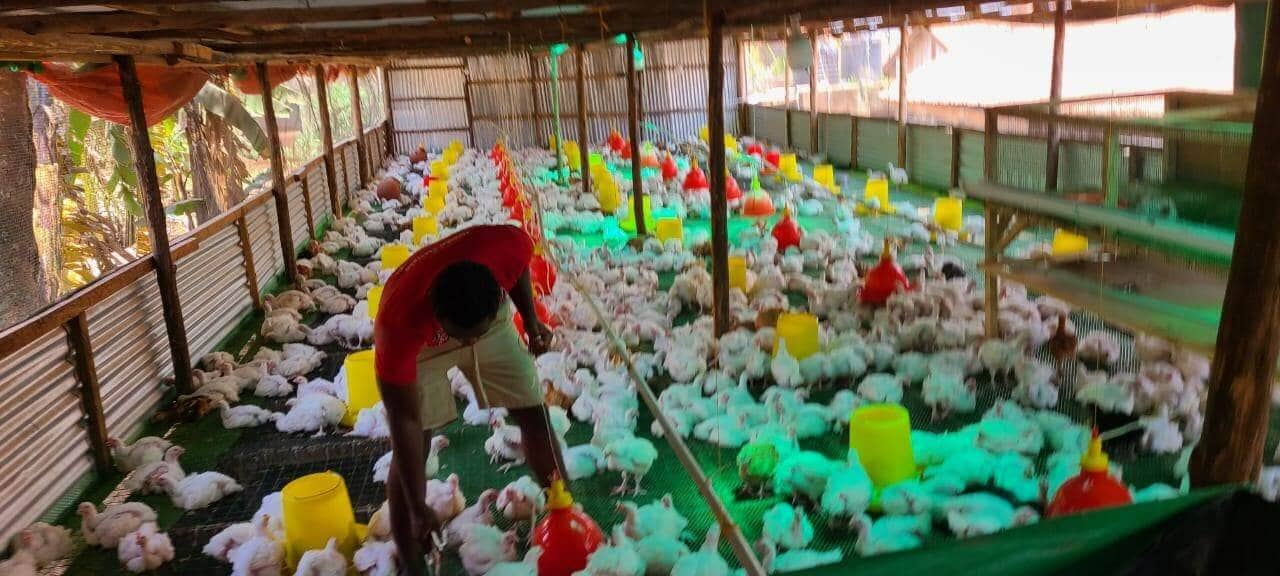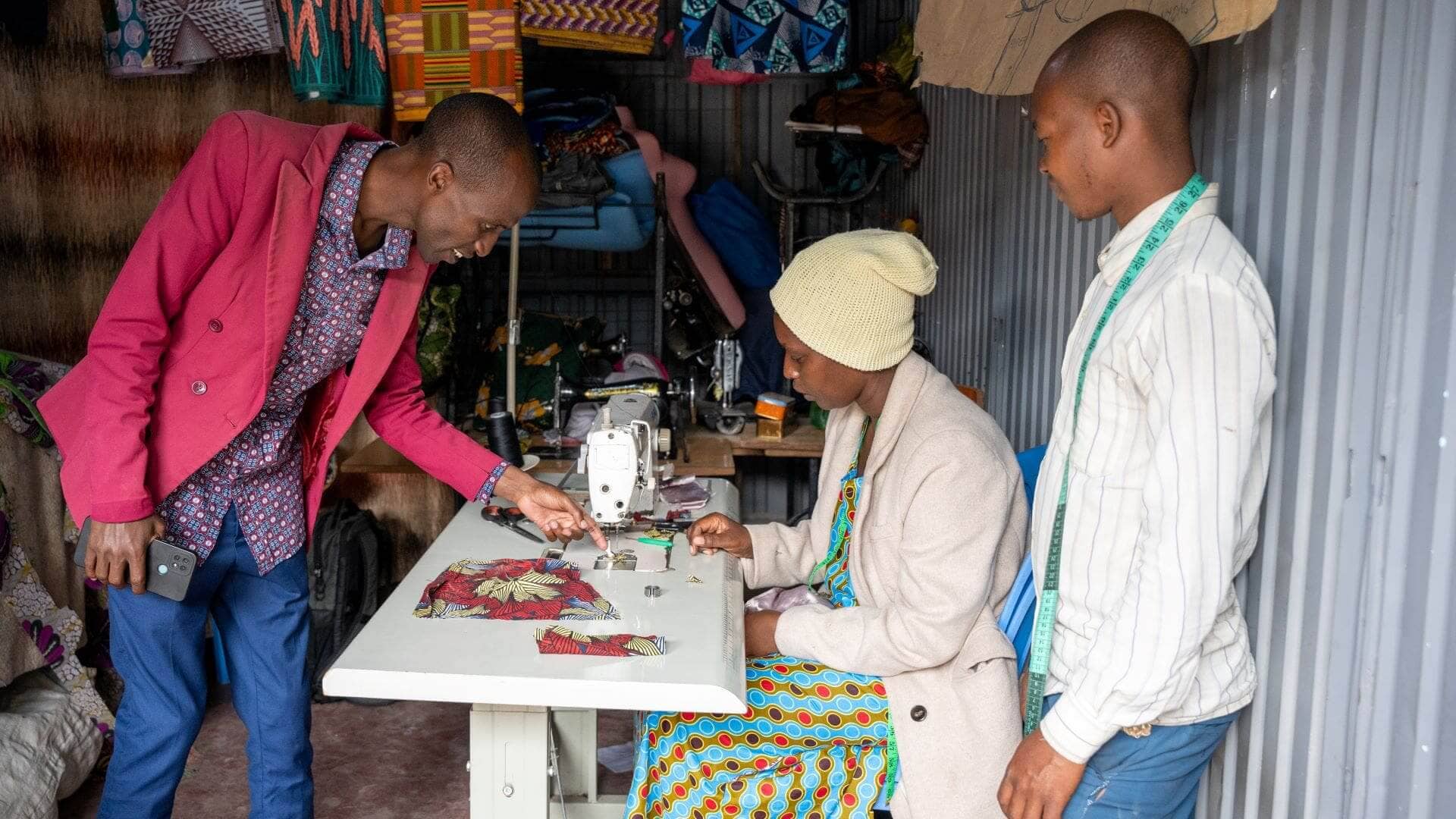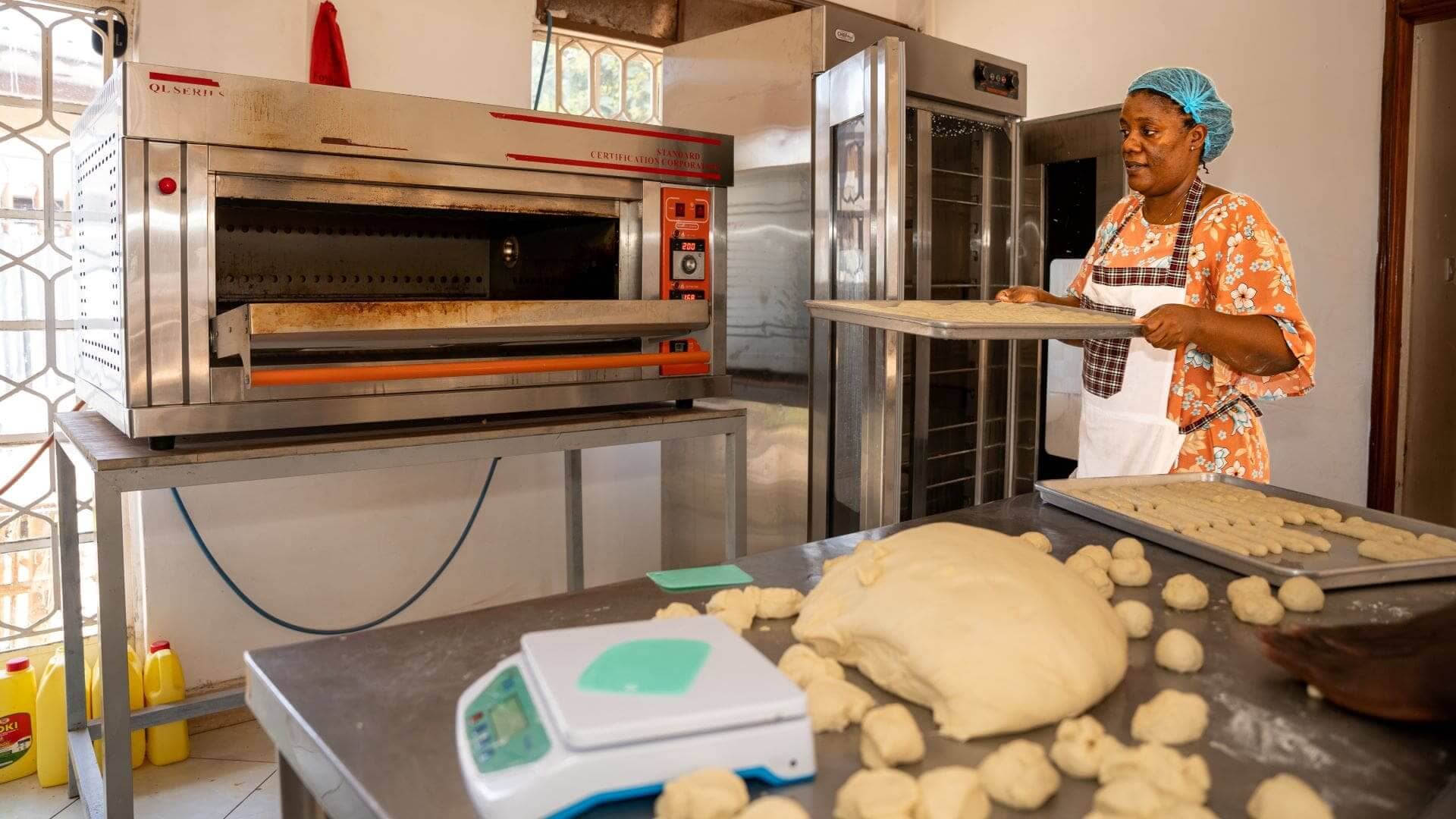Business mentorship offers Kyose new tactics to grow her salon business
Business mentorship offers Kyose new tactics to grow her salon business
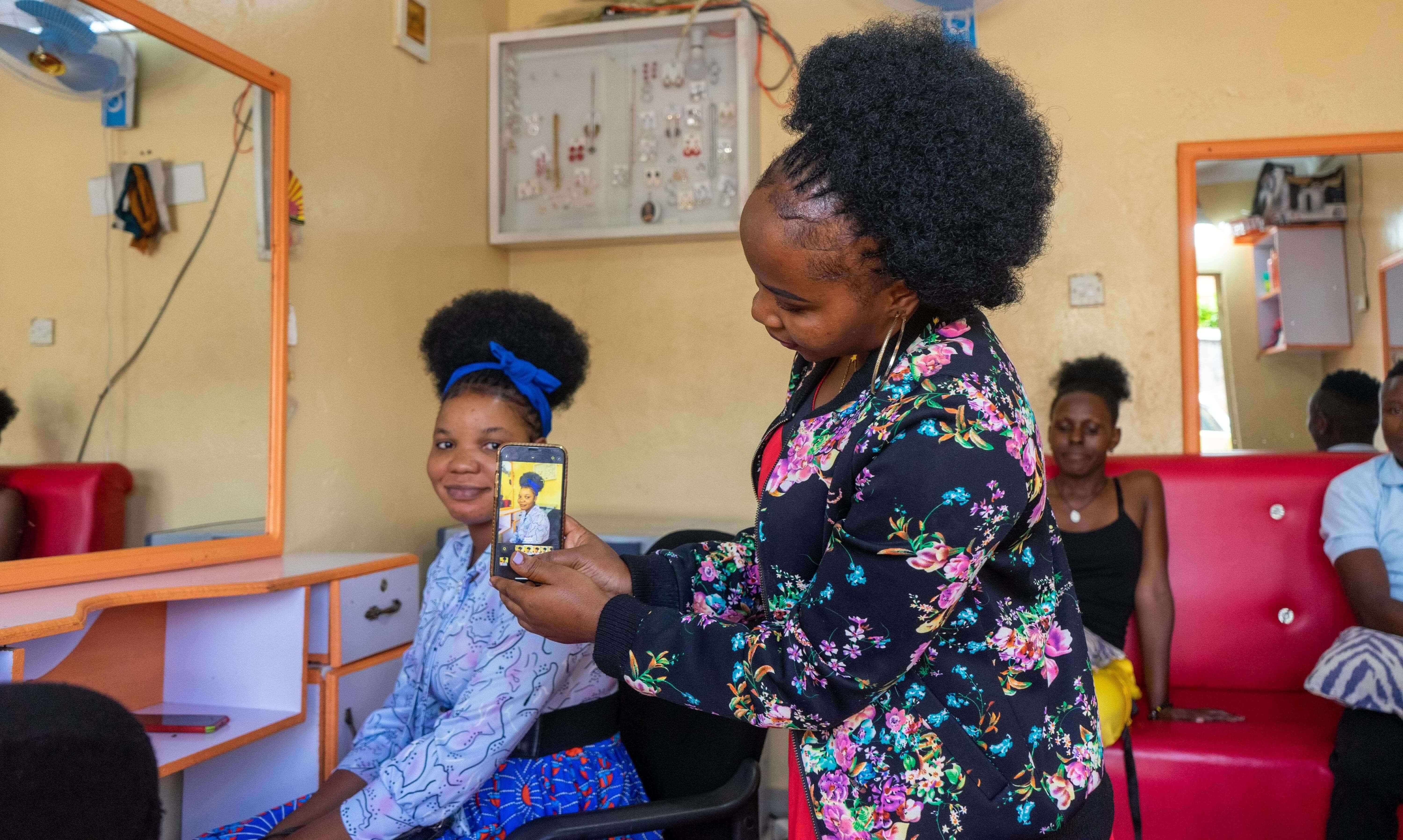
Florence Kavugho, a Re:BUiLD client in Kampala uses her phone to create social media content marketing her Kyose Locs Kampala business. Photo: Nathan Ijjo Tibaku/The IRC
In a bustling alleyway of Kasubi, a Kampala suburb, bright and bold signage for Kyose Locs Kampala catches the eye. The colorful signage exudes confidence. It is a reflection of the spirit of its owner, Florence Kavugho Kyose.
The proprietor, a Congolese refugee in Kampala, has been running this business since March 2021. Most of her clients learn of the services at her salon through posts on social media. While Kyose could reach numerous potential clients through marketing on social media, providing services to most of them remained a challenge. A good number of those who could turn up for her services had to wait for a long time rs and often many left unattended.
“When the clients find you engaged, they often walk away promising to return but fail to show up. After two to three washes, longer and thick locs take close to an hour to dry thus potential clients could walk away due to extended wait time or their turn,” says the dread stylist.
Kyose first opened up about this challenge in one of the weekly mentorship sessions facilitated by the International Rescue Committee’s Re:BUiLD Program. At the time, her thoughts were around having a larger space with more hairstylists to attend to walk-in clients. To expand her salon to accommodate more clients, Kyose says she would need a bigger shop, and a prime location closer to the main road. This would need her to dig deeper into her pockets for higher rental charges and additional equipment such as hair dryers. A professional stand hair dryer for instance costs around UGX 400,000 in Kampala.
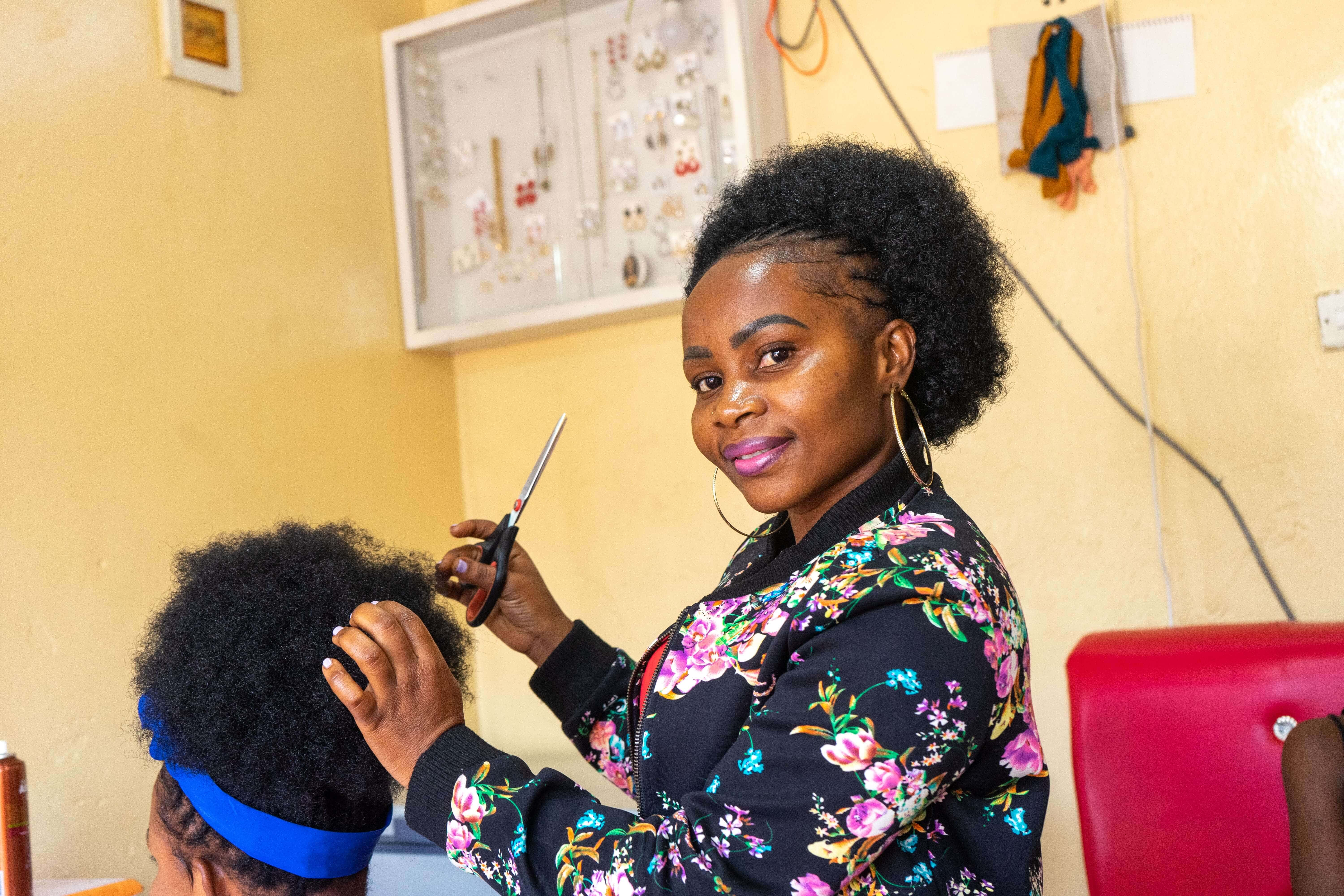
Florence Kavugho, a Re:BUiLD client in Kampala plaiting her client at her Kyose Locs Kampala business. Photo: Nathan Ijjo Tibaku/The IRC
Kyose is one of the 1,615 clients that are part of Re:BUiLD’s Randomized Control Trials (RCT) in Kampala.
The RCTs offer refugees and vulnerable hosts varied micro-enterprise service bundles anchored on a research model designed to establish the effectiveness and cost efficiency of specific interventions and delivery approaches to address the barriers urban refugees experience as they pursue economic self-reliance. Re:BUiLD offers mentorship to emerging entrepreneurs by grouping them with experienced business owners and providing business grants.
In Kampala, the research involved 2,000 mentees and 600 mentors. Kyose was assigned to a mentorship group with two other mentees under the basic mentorship treatment arm. The group would meet on Thursdays for the mentorship sessions.
The program prepares mentors to provide support and training to mentees using the IRC’s Learn to Earn curricula. The business skills component teaches youth to understand the complexity and risk in a business environment, and to identify business opportunities.
It is from these sessions, Kyose says, that the idea of introducing soft drinks and diversifying her services at her salon originated. This way, she’d retain a lot more clients and earn from clients buying refreshments and other beauty products. Kyose says her income is increasing, in a good month, her take home range between 300,000 and 500,000 UGX.
"Our mentor was open to answer all the questions we asked,' Kyose says, "I actually got the idea to buy a fridge and sell soft drinks from the mentorship sessions. You have to think of what more can make your business different or attract more customers." In addition to the mentorship, Kyose received a two million Uganda shillings (approx. USD 525) grant which she used to equip her salon with a refrigerator and to stock up hair products for her clients.
Tapping social media
For Kyose , social media is a vital tool for promoting new hair products. She notes that social networks are giving refugees platform to find clients and grow their business without worrying about discrimination.
Her salon’s TikTok account shares videos featuring women with beautiful new hairstyles. “
“I still want to relocate my salon to a place near the main road and rent a bigger room,” Kyose said. “With a bigger space I can receive more clients and even start training young women in hairdressing.”
The Salon employs 4 support staff, including Kyose’s younger brother, sister and two Ugandans whom she pays a commission on work done. In a good month, Kyose says she can take home about five hundred thousand shillings.
While these observable changes on Kyose’s business remain anecdotal for now, the Re;BUiLD randomized controlled trial (RCT) tests whether a cash transfer and group business mentorship program can improve microenterprise success and social cohesion outcomes for vulnerable Ugandan and refugee microentrepreneurs.
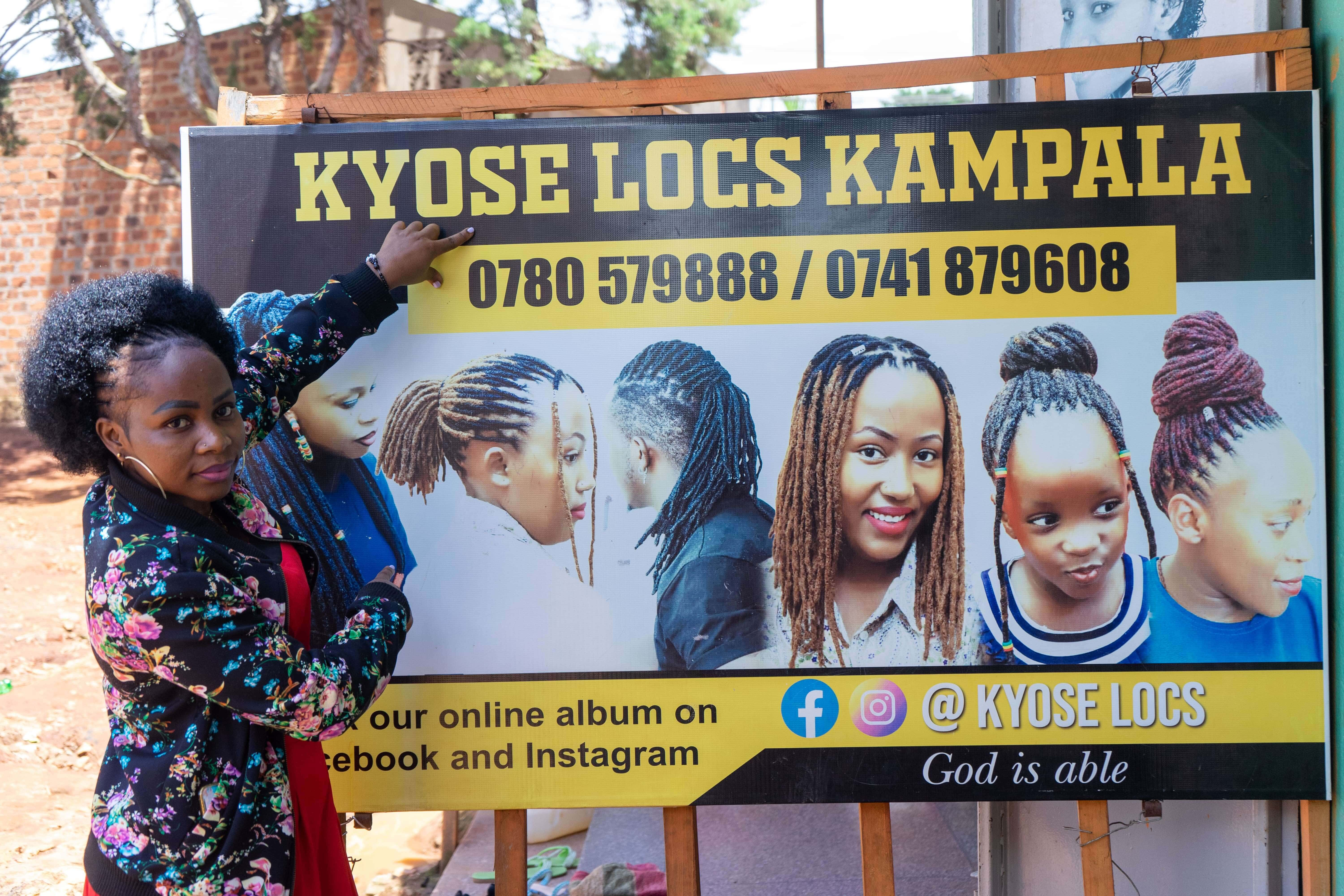
Florence Kavugho displays social media handles for her salon business. Photo: Nathan Ijjo Tibaku/TheIRC
